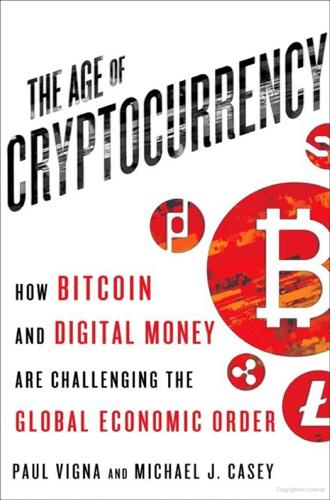
The Age of Cryptocurrency: How Bitcoin and Digital Money Are Challenging the Global Economic Order
by
Paul Vigna
and
Michael J. Casey
Published 27 Jan 2015
Nairobi has become one of Africa’s most important tech hubs, if not the biggest. It is sometimes called Silicon Savannah. The city even has its own version of 20Mission, a hacker house called iHub that’s not far from the University of Nairobi’s science center. It occupies a spacious, modern space on the fourth floor of an office building that would be right at home in Silicon Valley, with lots of light, room for talks and presentations, couches and lounge space (including a foosball table), and a coffee bar. It also has work space for the people creating things, those who are driving the growth of Silicon Savannah. The place is wired, literally and figuratively, and filled with young, energetic, bright kids.
…
For all the promise that technology holds—this idea that developing nations are going to “leapfrog” decades of development thanks to cheap, distributed, decentralized technology—the reality on the ground resists easy solutions. What M-Pesa has achieved, and what BitPesa promises, matter because they are effective tools for promoting economic activity, and thus development. This is why the stories coming out of Silicon Savannah are important—not only for Kenya but for the developing world as a whole. “There’s a much bigger story here,” Rossiello says. “We’re just getting started.” The root causes of financial isolation in poor countries go beyond people’s lack of bank accounts and how much it costs to send money. They start with the underprivileged being typically cut off from what Peruvian economist Hernando de Soto calls the “mystery of capital,” the idea that economic growth and the creation of wealth depend on clearly defined and documented property rights.
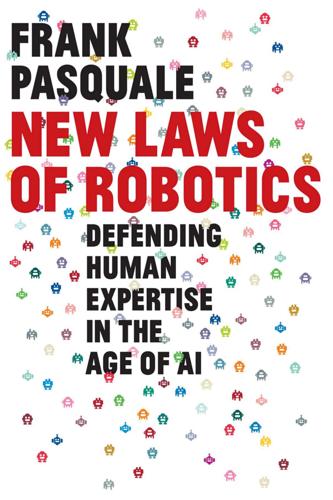
New Laws of Robotics: Defending Human Expertise in the Age of AI
by
Frank Pasquale
Published 14 May 2020
“I Borrowed £150 … Now I Owe £10k: Christmas Warning over Payday Loans,” Sun, December 16, 2012, updated April 4, 2016, https://www.thesun.co.uk/archives/news/342926/i-borrowed-150-now-i-owe-10k/. 54. Kevin P. Donovan and Emma Park, “Perpetual Debt in the Silicon Savannah,” Boston Review, September 20, 2019, at http://bostonreview.net/class-inequality-global-justice/kevin-p-donovan-emma-park-perpetual-debt-silicon-savannah. 55. Tressie McMillan Cottom, Lower Ed: The Troubling Rise of For-Profit Colleges in the New Economy (New York: The New Press, 2018). 56. Lauren Berlant, Cruel Optimism (Durham, NC: Duke University Press, 2011); David J.
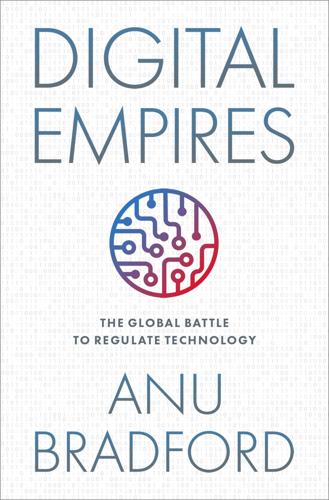
Digital Empires: The Global Battle to Regulate Technology
by
Anu Bradford
Published 25 Sep 2023
There are numerous examples of countries attempting to replicate the success of US tech companies by emulating California’s startup haven, the Silicon Valley. Examples of Silicon Valley replicas include “Silicon Wadi” in Tel-Aviv, Israel; “Silicon Roundabout” in London, UK; “Chilecon Valley” in Santiago, Chile; “Silicon Allee” in Berlin, Germany; “Silicon Lagoon” in Lagos, Nigeria; and “Silicon Savannah” in Nairobi, Kenya. One of the earliest examples is the United Arab Emirates’ “Internet City” in Dubai, which was established around the same time as California’s Silicon Valley. It tried to emulate the US techno-libertarian approach of eliminating taxes and other barriers to growth, leaving the industry largely unregulated.47 As a departure from standard business regulation in the country, foreign companies are also permitted to have 100 percent ownership in their businesses based there.
…
In part for this reason, the Internet City has attracted some of the world’s leading tech companies to Dubai, including Microsoft, Oracle, Dell, Cisco, HP, IBM, Canon, Siemens, Logica, Sony Ericsson, and Compaq. Sheik Mohammed bin Rashid Al Maktoum, Dubai’s ruler and Prime Minister of the UAE, has proudly stated that “Dubai has become the ‘Silicon Valley’ of the Middle East.”48 African governments have also increased their investments in the vibrant tech scene. Kenya’s “Silicon Savannah” was one of the first attempts by Africa to establish itself in the tech field, emerging between 2007 and 2010.49 The Minister of Communications and Digital Economy for Nigeria, Isa Pantami, has further claimed that Ogun, a city in Nigeria, will be the next Silicon Valley of Africa.50 Despite the many efforts to establish these other tech centers around the world, the US’s Silicon Valley remains the largest and most influential ecosystem of digital development in the world today—while also providing an inspiration for governments around the world.
…
American Civil Liberties Union, 46 Republican Party, 56, 272 research and development AI, 153–54, 197 Chinese students and researchers, 196–97 Defense Advanced Research Project Agency (DARPA) (US), 59 semiconductor, 59–60 RFE/RL (Radio Free Europe and Radio Liberty), 270 Rhodium Group, 93–94 Rice, Condoleeza, 271 rights to be forgotten, 112–13, 339–40 California Privacy Rights Act, 54–55 Charter of Fundamental Rights of the European Union (EU Charter), 110–11, 112, 116 cyber civil rights, 53–54 digital, 324–59 digital society of rights and values, 25 European, 324–59 European Convention of Human Rights, 112 globalization of, 324–59 of Muslims, 156–57 to privacy, 4, 111–13 safeguarding, 110–18 rights-driven regulations criticism of, 136–45 European model, 6–10, 16–20, 21–22, 23–24, 25, 28–29, 57–63, 91–94, 105–45, 221–54, 324–59, 361, 366–69 global influence, 16–20, 324–59 vs. market-driven regulations, 221–54 Roberts, Margaret E., 81–82, 83 Rohingya, 17–18, 280, 283 Romania, 144 Roskomnadzor, 309, 311–12 Ross, Wilbur, 226 Rozenshtein, Alan, 61–62 Rubio, Marco, 196–97 Rudd, Amber, 281–82 Rules on Counteracting Unjustified Extra-territorial Application of Foreign Legislation and Other Measures (Blocking Rules) (China), 200, 202 Russel, Stuart, 66–67 Russia 5G networks, 312 antitrust regulation, 344–45 battles with tech companies, 13–14, 163 BRICS Leaders Declaration, 303 content controls, 180–81 cyberattacks, 134 data localization requirements, 330–31 demands on Meta, 338 digital authoritarianism, 135, 308–13 Digital Divide projects, 268 disinformation campaigns, 120–21 Federal Security Service, 312–13 hate speech law, 140–41 and international code of conduct for information security, 303 internet sovereignty, 309–10 invasion of Ukraine, 13–14, 62, 163, 233–34, 253, 312–13, 384, 392 “law against Apple,” 312 propaganda, 308, 312–13 regulations, 308–13 relations with China, 310–13 sanctions against, 163, 197–98 search engine market, 260–61 social media restrictions, 284 Sovereign Internet Law, 308–9 surveillance technology, 312 tech diplomacy, 302 techno-autocracy, 389–90 US–Russia Cold War, 217–18, 270 Yarovaya law, 309 Russia Today, 312–13 Russian Antimonopoly Service (FAS), 344–45 Russian apps, 312 Russian hackers, 67 safe cities, 296–97, 300–1, 314–16. see also smart cities Safe Harbor data transfer agreement, 111, 229–30 Safe Philippines project, 300 SAMR (State Administration for Market Regulation) (China), 204 Samsung, 215–16, 261 sanctions Anti-Foreign Sanctions Law (AFSL) (China), 202–3 against China, 185–86, 197–99, 218–19 against Chinese firms, 102–3, 166–67 cyber sanctions, 206–7 to deter malicious cyber activity, 134, 197–99 against Russia, 163, 197–98 against Russian oligarchs, 309–10 Santiago, Chile, 263 SAP, 108, 136–37 Sasse, Ben, 192–93 Saudi Arabia, 270–71, 308, 316, 389–90 5G networks, 193–94 China’s influence on, 299–300 Saverin, Eduardo, 374–75 SCCs (standard contractual clauses), 231–32 Schmidt, Eric, 75, 208, 274–75, 389–90 Schmit, Nicolas, 128 Schneir, Bruce, 101 Schrems, 229–30 Schrems, Max, 230–32, 235–36 Schrems II, 230–34 Schwab, Andreas, 249 Schwartz, Paul, 325 science and technology diplomats, 302 search engines, 153–54. see also specific technologies Secure Campus Act (US), 196–97 Secure Equipment Act (US), 193 Securities and Exchange Commission (SEC) (US), 14–15, 174–75, 176–78 security cybersecurity, 60, 62, 173 Cybersecurity Law (China), 79–80, 94–95 Cybersecurity Review Measures (China), 94–95 Cyberspace Administration of China (CAC), 175 Data Security Law (DSL) (China), 79–80, 94–95, 175 international code of conduct for information security, 303 national, 66–67, 164–78 National Security Law (China), 79–80 Prague Proposals, 320–21 societal, 85 self-regulation, 39–40, 47–48, 63–64 self-sufficiency, 73–75, 199–211, 217–18 Semiconductor Industry Association (US), 218 semiconductors advanced, 217–18 global market, 74–75, 134–35, 215–16 research and development, 59–60 US export controls, 190 US–China tech war, 211 Senegal, 285–86 Senkaku Islands (Diaoyu Islands), 156–57 SenseTime, 85, 189–90 Sequoia Capital, 373 Serbia, 301 sex trafficking, 51–52, 53–55 Shanghai Cooperation Organization, 303 Sharp Eyes initiative (China), 4–5, 86 Shein, 165 Shenzhen, China, 35 Sherry, Linda, 355–56 Shu Yinbiao, 305 Sichuan, China, 314 Siemens, 263, 321 Siemens/Alstom, 248 Silicon Allee (Berlin), 263 Silicon Lagoon (Lagos), 263 Silicon Roundabout (London), 263 Silicon Savannah (Nairobi), 263 Silicon Valley, 7–8, 33–35, 42, 92–93, 263, 283–84, 374 Silicon Wadi (Tel-Aviv), 263 Singapore, 266–67, 322 Singapore-New Zealand-Chile Digital Economy Partnership Agreement, 322 Siri (Apple), 59 Slack, 76–77 Small Business Administration (SBA), 59 smart cities AI cities, 208–9 on Chinese Digital Silk Road, 195, 291–92, 296–97, 298, 305, 312, 314–15, 316–17 surveillance systems, 85–86, 296, 312, 316–17 technical standards, 305, 316–17 smartphones, 70–71, 215–16 Smith, Brad, 62, 138 Smith, Christopher, 276 Snap Inc., 76–77, 382–83 Snapchat, 116–17, 280–81 Snowden, Edward, 4–5, 7–8, 61, 198–99, 226–27, 229–30, 284–85, 287–88, 318–19 social credit, 8–9, 87–88 social fairness, 124 social media, 41, 64–65, 215–16 Chinese platforms, 80, 82–83, 154–55, 166–67, 293, 312–13 disinformation campaigns, 280–81 role in Brexit, 280 role in January 6, 2021 attack on the US Capitol, 141 role in terrorist attacks, 281–82 US platforms, 280–83 social media companies, 280–83, 362–63. see also specific companies by name Social Principles of Human-Centric AI (Social Principles) (Japan), 349–50 social stability, 70 societal security, 85 Softbank, 176 software developers, 73 Soho China, 204 SolarWinds hack, 60 Sonos, 330 Sony Ericsson, 263 SoundCloud, 76–77 South Africa, 303 South America, 301. see also specific countries by name South and South-East Asia, 260, 300. see also specific countries by name South Korea, 211, 333–34, 337, 344–45 Anti-Google Law (Telecommunications Business Act 31), 347 Digital Divide projects, 268 techno-democracy, 389–90 Sovereign Internet Law (Russia), 308–9 sovereign RuNet, 308–9 sovereignty data, 297 digital, 132–33, 135, 186, 215, 245–46, 354 internet, 288–89, 309–10 technological, 132–33, 180–81, 234 Spain antitrust investigations, 345 data privacy law, 333–34 digital policy, 142 digital services tax (DST), 126–27, 239, 242 Google News withdrawal from, 122–23 privacy culture, 143–44 protections for platform workers, 128–29 restrictions on Chinese tech companies, 193–94 smart cities, 296–97 surveillance practices, 102, 143–44 speech freedom of, 41–42, 46–47, 116–18 hate speech, 281 Hate Speech Code (Code of Conduct on Countering Illegal Hate Speech Online) (EU), 116–17 hate speech rules, 9–10, 55–56, 116–17, 140–41 NetzDG law (Germany), 140–41 splinternet, 16, 179–80, 181, 388 Spotify, 238 Sputnik, 312–13 spyware, 143–44, 316 standard contractual clauses (SCCs), 231–32 standards China Standards 2035 plan, 304 Chinese, 291 Chinese influence on, 302–8, 316–17 data privacy, 324–25 digital trust, 320–21 IPv6+ (proposed), 307 New IP (proposed), 306–7 for smart cities, 316–17 technical, 291, 302–8, 316–17 Stanford University, 33–34, 59, 210–11 Stasi (East German Ministry for State Security), 111–12 State Administration for Market Regulation (SAMR) (China), 204 state aid, 243–44 state control Chinese state-driven regulatory model, 6–10, 16–20, 21, 23–25, 28–29, 57–63, 69–104, 108, 131–36, 364–66, 391–92 criticism of, 99–104 global consequences, 16–20 vs. market-driven regulations, 36–40 Russian state-driven regulatory model, 308–13 with surveillance, 85–88 with tech companies, 88–91 Stop Online Piracy Act (SOPA) (US), 48–49 #StopHateForProfit boycott, 384 strategic autonomy, 132–34, 186 Stratton Oakmont v Prodigy, 43–44 subsidies, 134–35 Sudan, 297–98 Sugon, 161–62 Sullivan, Jake, 209, 251–52, 351 Summit of Democracy, 390 Sun Jiandong, 80 Sunstein, Cass, 64–65 surveillance capitalism, 4, 66, 135–36, 368–69 surveillance imperialism, 17 surveillance technology(-ies) AI-driven, 85, 293 Chinese, 77–91, 297–98, 314–20 citizen response, 88–91 Commerce Control List (US), 188–89 and crime, 85, 296–97, 301, 314 cybersurveillance, 134 digital, 4–5, 61, 85–88, 99–100, 170 ECU-911, 301 globalization of, 314–20 government, 4–5, 17, 60–62 Safe Philippines project, 300 Snowden revelations, 4–5, 7–8, 61, 198–99, 226–27, 229–30, 284–85, 287–88, 318–19 standards for, 306 transatlantic data transfers, 226–36 Susquehanna, 93 Sweden, 142, 272–73, 319–20, 374, 389 Switzerland, 333–34 Syria, 3, 270–71, 274 T-12 group, 389 Taiwan, 78–79, 80, 211, 216–17, 319–20 Tajikistan, 303 Taliban, 274, 282 Tanzania, 282–83, 299 Tauzin, William, 44–45 taxation bit taxes, 286 Data Mining Tax (New York), 239–40 digital services taxes (DSTs), 126–28, 142–43, 224, 236–41, 352 global deal, 240–42 national regimes, 142–43 Tech-10, 389–90 tech companies. see also specific companies by name acquisitions, 50–51 AI developments, 208–9 battles among, 382 Chinese, 70–71, 93–94, 98–99, 102–3, 151–52, 164–79, 189–90, 192–96, 208–9, 215–16, 262–63 Clean Telcos, 320–21 concern with the Brussels effect, 353–59 content moderation, 338–39 countermeasures against the Brussels effect, 356–59 custodians of the internet, 141 data collection from, 61 data privacy policies, 326–32 European, 108, 136–37 global influence, 259–65 global sales, 215–16 government battles, 13–16, 25–26, 61–62, 152–64, 205, 222, 376–85 hardware companies, 73 internet companies, 70–71 large, 377–78, 381–85 largest public internet companies, 70–71 liberation of, 42–45 new governors, 259–60 political influence, 55–56 private power, 20 regulation of, 377–78. see also regulation(s) Silicon Valley replicas, 263 social media companies, 166–67 state-controlled surveillance with, 88–91 terms of service, 338 US, 14–15, 108, 149–50, 151, 152–64, 205, 222, 257–58, 259–65 TechAmerica Europe, 357 technical standards, 291, 302–8 techno-autocracy(-ies), 22, 292, 388–93 techno-democracy(-ies), 22, 320, 388–93 techno-libertarianism, 34–35, 38–39, 257–89 techno-nationalism, 75–76, 184–85, 211, 212–15, 224, 249 techno-optimism, 33, 48, 122 technological self-sufficiency, 199–211, 217–18 technological sovereignty, 132–33, 180–81, 234 technology(-ies) 5G network, 133–34 backlash against, 55 censorship, 77–91 Chinese, 21, 72–75, 77–91, 92–93 chokepoint, 206 critical assets, 192–96 “Declaration for the Future of the Internet,” 390 decoupling from consumer markets, 178–82, 388 deep tech, 206–7 facial recognition, 85, 138, 298–99 geoblocking, 338, 339 hard tech, 96–97 regulation of, 1–29, 360–93. see also regulation(s) science and technology diplomats, 302 smart city, 85, 296–97 standards for, 305 surveillance, 77–91 US export limitations on, 188–92 US–China tech war, 10–11, 96–97, 103, 151–52, 164, 179–80, 183–220, 295, 361, 366, 386, 387 technopolarity, 259–60 Tel-Aviv, Israel, 263 telecommunications 4G networks, 297–98 5G networks, 133–34, 187–88, 190, 192–94, 293, 301, 320–21 Chinese tech exports, 293 network equipment, 70–71, 194, 215–16 security guidelines, 320–21 Telecommunications Act (US), 43–44 Telecommunications Business Act 31 (Anti-Google Law) (South Korea), 347 Telegram, 285–86, 311–12 Tencent, 108, 154 antitrust blockade, 347–48 Chinese state support, 8–9, 71, 94, 391–92 DSR operations, 294–95 global influence, 70–71, 73, 208–9, 293 global revenues, 262–63 social responsibility programs, 98–99 US funding, 93–94 Teradyne, 218 terrorist attacks, 61–62, 281–82 terrorist propaganda, 3, 117 Tesla, 142–43, 215–16 Texas, 56, 336 TFDPA (Act on Improvement of Transparency and Fairness in Trading on Specified Digital Platforms) (Japan), 346–47 3rd Generation Partnership Project (3GPP), 305–6 Thomson, Derek, 101 Thucydides Trap, 216–17 Tiananmen Square protests (1989), 76–77, 78–79 Tibet, 78–79, 153–54 Tigrayans, 283 TikTok battles with governments, 14–15, 151–52, 169–70, 193–94 Code of Conduct on Countering Illegal Hate Speech Online (Hate Speech Code), 116–17 content moderation, 341 Disinformation Code, 120 global influence, 70–71, 100, 215–16, 260, 293–94 Indian ban on, 169–70, 193–94 relations with Meta, 170 Russian fines, 309–10 UK Parliament account, 169–70 US attempts to ban, 102–3, 151–52, 165–72, 200–1 US presence, 165, 178 Toomey, Patrick, 236 trade Chinese exports, 290–323 digital trade agreements, 322–23 Export Administration Regulations (EAR) (US), 189–90 Export Control Reform Act (ECRA) (US), 188–89 transatlantic war, 236–42 US export controls, 15, 188–92, 218–19, 366 US–China trade war, 97, 185–86, 188–92, 200 Trade Act (US), 238–39 Trade and Technology Council (TTC) (US-EU), 252–54 Trans-Pacific Partnership, 213 transatlantic data transfers, 226–36 battles over, 222–23, 228–31 future directions, 231–36 standard contractual clauses (SCCs), 231–32 transatlantic regulatory battles, 26–27, 221–54 Transatlantic Trade and Investment Partnership, 253–54, 359 Transatlantic Trade and Technology Council, 359 transatlantic trade war, 236–42 Treaty of the European Union, 110, 118 Trip Advisor, 358 Truex, Rody, 197 Trump, Donald America First policy, 213 complaints against EU antitrust policy, 245 disinformation propagation, 277–78 efforts to ban Chinese tech companies, 102–3, 166–68 efforts to discipline social media companies, 49–50 efforts to restrict entry of individuals from Muslim-majority countries, 156–57 internet freedom agenda, 276–77 and Malofeev, 309–10 presidential campaign (2016), 368–69 suspension from social media, 384 transatlantic trade war, 238–39 US–China tech war, 184–85, 192–93, 208, 213, 218 Tsargrad TV (YouTube channel), 309–10 TTC (Trade and Technology Council) (US-EU), 252–54 Tumblr, 76–77 Tunisia, 272–74 Turkey, 338, 344–45, 374 5G networks, 193–94 digital services taxes (DSTs), 352 21Vianet Group, 154 Twitch, 76–77 Twitter Apple’s new anti-tracking measures and, 382–83 Arab Spring posts, 272 Chinese blockade, 76–77, 78–79, 80 compliance with EU laws and regulations, 116–17, 163 content moderation, 3, 7–8, 65–66, 337–38, 341, 377–78, 384–85 disinformation campaigns, 280–81 Disinformation Code, 120 employee walkout, 384–85 European headquarters, 142–43 fact checks, 49–50, 82–83, 277 global influence, 133–34, 257–58 harmful content, 141, 282–83 Hate Speech Code, 116–17 hateful conduct, 338 propaganda on, 282–83 purchase by Musk, 105 role in Brexit, 17–18, 280 role in cyberterrorism, 284 role in spread of false information, 65 Russian blockade, 163, 309–10, 311–13 support for internet freedom, 274–75, 284 withdrawal from China, 8–9 Uber, 165 Uber drivers, 128–29 UEL (Unreliable Entities List) (China), 200–1, 218–19 Uganda, 282–83, 317–18 Ukraine battles with tech companies, 13–14 cyber defense, 62 Russian invasion of, 13–14, 62, 163, 233–34, 253, 312–13, 384, 392 unicorns, tech, 136–37 unipolar world, 386 United Arab Emirates, 193–94, 299–300 United Kingdom (UK), 337 5G networks, 301 antitrust regulation, 345–46 Brexit campaign, 17–18, 120–21, 280 Competition and Markets Authority, 345–46 content moderation, 342 data protection law, 333–34 digital policy, 142 digital services tax (DST), 126–27, 239, 242 e-commerce market, 262 G7 relations, 321–22 nonregulation principle, 266–67 Online Safety Bill (OSB), 342 Parliament, 169–70 protections for platform workers, 128–29 relations with China, 197–98 Remain campaign, 17–18 restrictions on Chinese tech companies, 193–94 tech diplomacy, 302 techno-democracy, 389–90 United Nations (UN), 111, 269, 288–89, 302–3, 307–8 United Nations Human Rights Council (UNHRC), 273 United States (US) AI regulation, 351 AI research, 210–11 Allow States and Victims to Fight Online Sex Trafficking Act (FOSTA), 51–52, 53–54, 55 America First policy, 213 American Innovation and Choice Online Act, 53–54 anti-censorship principles, 267–68, 270–76 antitrust regulation, 5, 50–51, 244–45, 345, 347–48, 363 Bankruptcy Code, 374 battles with China and EU, 11–13, 15–16, 21, 26–27, 57 battles with tech companies, 13–16, 164–78 Biden administration, 53, 168, 196, 197–98, 241, 278–79, 321 Bureau of Cyberspace and Digital Policy, 278 Bush administration, 48–49, 257, 271, 276 Chamber of Commerce, 61–62 Children’s Online Privacy Protection Act (COPPA), 44–45 China Initiative, 196–97 Chinese influence in, 301 Chinese measures against, 199–207 Chinese tech companies in, 165 CHIPS and Science Act, 59–60, 211 Clarifying Lawful Overseas Use of Data Act (CLOUD Act), 222–23 Clean Network program, 320–21 Clinton administration, 36–37, 47–48, 257, 265–70, 276 Commerce Control List, 188–89 Committee on Foreign Investment in the United States (CFIUS), 195–96 Communications Decency Act (CDA), 5, 42–47, 53–54, 56–57, 64, 132, 137–38, 265–66, 286–87, 364 criticism of, 279–89 cyber sanctions, 197–99 cybersecurity, 61–62, 67, 276–77 Data Privacy Framework, 235 data privacy law, 235, 336 “Declaration for the Future of the Internet,” 390 Defense Advanced Research Projects Agency (DARPA), 59, 209 Department of Commerce, 60, 168–69, 188–89 Department of Defense, 59, 209 Department of Homeland Security, 60 Department of Justice (DOJ), 46–47, 50–51, 53–54, 196, 348, 363 Department of State, 271–75, 276–77, 278, 284 Department of the Treasury, 245 Development Initiative, 268 Digital Millennium Copyright Act, 44–45 digital policy, 57, 213, 250–54 digital services taxes (DSTs), 237, 239–40 digital trade agreements, 322 e-commerce market, 262 Entity List, 189–90, 200–1, 218–19 Executive branch, 47–50 Executive Order on Enhancing Safeguards for United States Signals Intelligence Activities, 235–36 Export Administration Regulations (EAR), 189–90 Export Control Reform Act (ECRA), 188–89 export controls, 15, 188–92, 218–19, 366 Federal Bureau of Investigation (FBI), 61–62, 196, 236 Federal Communications Commission (FCC), 44, 193 Federal Trade Commission (FTC), 50–51, 53–54, 139–40, 348, 363 Foreign Investment Risk Review Modernization Act (FIRRMA), 195 foreign policy, 40–41, 253–54, 272, 276–77, 278, 284 foreign students, 375 “A Framework for Global Electronic Commerce” (Framework), 48, 266–67, 286 G7 relations, 321–22 global influence, 16–20, 27, 257–89 Holding Foreign Companies Accountable Act, 96, 174 immigrants, 197, 374–75 imperialism, 17, 232 industrial policy, 59–60 Innovation and Competition Act, 190–91 International Strategy for Cyberspace, 48–49 Internet Freedom Grants, 273–74 internet freedom initiatives, 27, 257, 265–79, 284–87 Internet Protection Act, 44–45 Internet Regulatory Freedom Act, 44–45 Jordan Free Trade Agreement, 267–68 market-driven ethos, 42–52 measures against China, 187–99 Meeting the China Challenge Act, 190–91 National Science Foundation, 59 national security, 49–50, 66–67, 164–78, 233–34 National Security Agency (NSA), 4–5, 47–48, 61–62, 101, 198–99, 229–30, 318–19 National Security Commission on Artificial Intelligence, 99–100, 208, 209 National Security Council (NSC), 245–46 “National Strategy to Secure Cyberspace,” 48–49 nonregulation principle, 265–70 Obama administration, 48–49, 51, 54–55, 61–62, 257, 272, 276 Online Freedom and Viewpoint Diversity Act, 277 Open Technology Fund, 276–77 political process, 55–56 presidential election (2020), 277–78 privacy law, 5, 38, 333 Privacy Shield, 19, 230–33 Public Company Accounting and Oversight Board (PCAOB), 177–78 public opinion, 362–64 regulations, 6–10, 21–22, 23–24, 26–27, 28–29, 33–68, 91–94, 106–7, 131–36, 221–54, 361–64, 366–69 restrictions on Chinese tech companies, 165–78, 195, 388 Safe Harbor data transfer agreement with EU, 111, 229–30 sanctions against China, 102–3, 185–86, 197–99, 218–19 sanctions against Russian oligarchs, 309–10 scientific community, 196–97 Secure Campus Act, 196–97 Secure Equipment Act, 193 Securities and Exchange Commission (SEC), 14–15, 174–75, 176–78 self-sufficiency, 217–18 semiconductor funding, 211 Small Business Administration (SBA), 59 Stop Online Piracy Act (SOPA), 48–49 subsidies, 217–18 surveillance operations, 4–5, 7–8, 61–62, 101, 226–27, 229–30, 284–85, 287–88, 318–19 tech diplomacy, 302 techno-democracy, 389–90 techno-libertarianism, 257–89 technological leadership, 197 Telecommunications Act, 43–44 Trade Act, 238–39 Trade and Technology Council (TTC), 252–54 transatlantic regulatory battles, 26–27, 221–54 transatlantic trade relations, 236–40 Trump administration, 49–50, 168–69, 171, 185, 196–97, 200–1, 213, 228, 241, 253–54, 276–77, 320–21 universities, 375 US–China relations, 74–75, 162–63, 171, 323 US–China tech war, 10–11, 96–97, 103, 151–52, 164, 179–80, 183–220, 295, 361, 366, 386, 387 US–China trade war, 97, 185–86, 200 US–EU regulatory battles, 221–54, 359, 361–69, 387 US–EU relations, 127 US–Japan Digital Trade Agreement, 322 US–Russia Cold War, 217–18, 270 United States Capitol: January 6, 2021 attack on, 7–8, 66, 100, 141, 251, 286, 363–64, 367–68 United States Constitution, 41–42, 46–47, 50, 337 United States District Court for the District of Columbia (DDC), 168–69 United States House of Representatives, 102, 277 United States Overseas Private Investment Corporation, 268 United States Senate, 99–100 United States Supreme Court, 50 Citizens United, 355 FBI v Fazaga, 236 Packingham v.
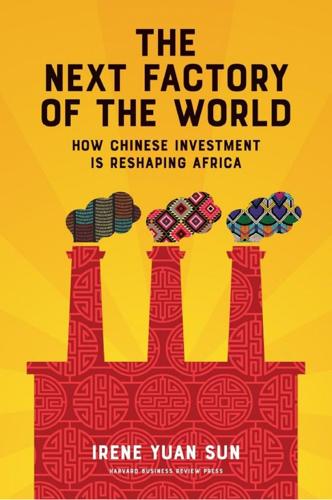
The Next Factory of the World: How Chinese Investment Is Reshaping Africa
by
Irene Yuan Sun
Published 16 Oct 2017
A world apart from both Nigeria and Lesotho, Kenya is the flagship economy of East Africa, boasting its own brand of entrepreneurship and innovation. Although youth unemployment has been worrisome and security concerns about neighboring Somalia lurk, Kenya’s GDP has grown consistently at a robust 5–6 percent a year over the past five years, and its burgeoning tech sector has earned Nairobi the moniker “Silicon Savannah.” Here, more than a few Chinese companies are attempting to innovate as well, introducing new technologies to the Kenyan market and experimenting with novel partnerships with the local government. Finally, to the north of Kenya, in the Horn of Africa, lies proud Ethiopia, the only African country never to have been colonized by a European power.

The Best Interface Is No Interface: The Simple Path to Brilliant Technology (Voices That Matter)
by
Golden Krishna
Published 10 Feb 2015
Silicon Glen, 39. Silicon Goli, 40. Silicon Gorge, 41. Silicon Gulf, 42. Silicon Harbor, 43. Silicon Hill, 44. Silicon Hills, 45. Silicon Lagoon, 46. Silicon Lane, 47. Silicon Mall, 48. Silicon Mallee, 49. Silicon Mill, 50. Silicon Peninsula, 51. Silicon Pier, 52. Silicon Roundabout, 53. Silicon Sandbar, 54. Silicon Savannah, 55. Silicon Saxony, 56. Silicon Sentier, 57. Silicon Shipyard, 58. Silicon Shire, 59. Silicon Shore, 60. Silicon Sloboda, 61. Silicon Slopes, 62. Silicon Spa, 63. Silicon St, 64. Silicon Surf, 65. Silicon Swamp, 66. Silicon Taiga, 67. Silicon Valley, 68. Silicon Valley of China, 69. Silicon Valley of India, 70.
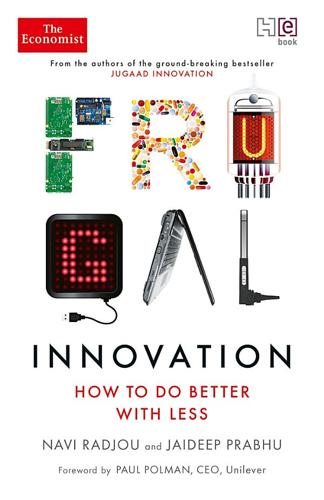
Frugal Innovation: How to Do Better With Less
by
Jaideep Prabhu Navi Radjou
Published 15 Feb 2015
In India, IBM researchers found that most banks do not have centralised data warehouses, so they developed edge analytics, which scrape all the data from the end points in transaction flows and use it to build risk models. Morris is even more excited about Africa’s innovation potential, which IBM deems a super strategic continent that is ahead of the curve. In November 2013, IBM inaugurated its first African R&D lab in Nairobi, Kenya – a Silicon Savannah – a frugal innovation hotbed that draws on mobile phone technology. Nearly 20 million Kenyans now use M-Pesa, a mobile-based money transfer service whose users do not need a bank account (indeed, many Kenyans may decide that they will never need one). Over 50% of Kenya’s GDP flows through M-Pesa.
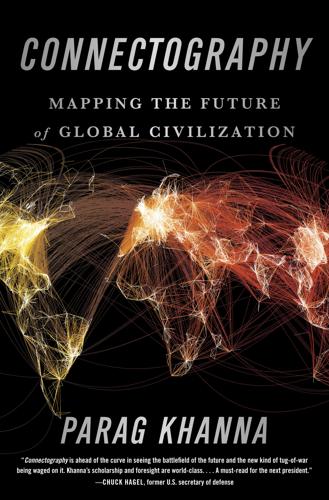
Connectography: Mapping the Future of Global Civilization
by
Parag Khanna
Published 18 Apr 2016
.*2 Today at least three hundred undersea Internet cables crisscross the earth like yarn wrapped around a ball, carrying 99 percent of intercontinental data traffic.*3 When faraway places enjoy enhanced connectivity, the meaning attached to their location begins to change. Just one fiber cable has propelled Kenya onto the digital map, with Google, IBM, MasterCard, and other companies setting up research labs in the budding “Silicon Savannah.” The landlocked countries Uganda and Zambia both got their first fiber-optic cables connected from the Indian Ocean in 2014. They are still physically landlocked but digitally connected. Telegeography maps of Internet cable routes thus reveal the growing density of ties across vast geographies.